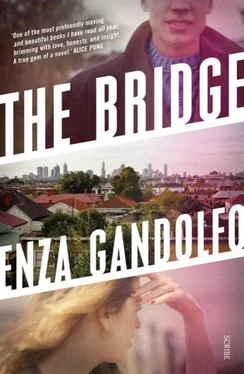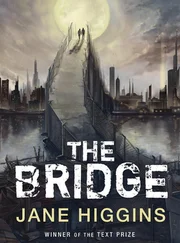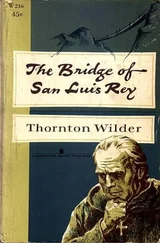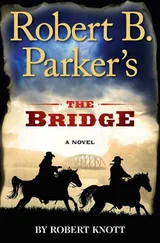They might not have stayed best friends forever; they might’ve gone their separate ways. But now Ash was dead and Jo couldn’t tell her to fuck off. She couldn’t be the one to stop returning calls.
As if.
She’d never know if Ash was going to drop her, if their friendship was a lie. When had the lying started? If she read all the journals from beginning to end, would she discover the truth?
Crazy Jo, the answer’s not in my journals. You can’t be trusted with anything, with anyone.
She could not read the journals. She gathered them up, shoved them back into the safe, and shut the door. She would never have another best friend.
By the time Sarah returned to the office, it was after six. She parked the car next to the rest of the office fleet, locked it, returned the key to the drawer behind reception, and left without talking to anyone. She caught the 6.40 to Flinders Street. There were less than a dozen passengers: a couple of groups of male workers with bright orange and green safety jackets; an elderly couple, both reading novels; a gaggle of teenage girls in school sports uniform, carrying hockey sticks and still analysing the game: why they lost and whose fault it was, coming to the conclusion that if they had a better coach they might have won. One of the workmen elbowed his mate and nodded in the girls’ direction. The other guy grinned. ‘That would be cradle snatching.’ Sarah was tempted to tell the men to stop ogling the girls, all under age, but the girls seemed oblivious, the men too old to be on their radar, and she didn’t want to spoil their afternoon.
The accumulated litter of the day’s commuters was scattered around them: abandoned newspapers, soft drink cans, and paper cups carelessly dropped, staining the floor with their sticky dregs; half-eaten food abandoned in scrunched-up paper bags and plastic takeaway containers. The carriage smelt of fried food and sweat. Sarah thought about Ashleigh’s father, standing at the window unable to move, about Ashleigh’s mother knocking on Mandy’s door, about Mandy pacing in her kitchen. She picked up the mX and flicked through pages of city news: drugged-out footballers, reality-television celebrity makeovers, alcohol-induced fights in the CBD.
Sarah loved living in the city centre. It was five years since she’d bought the apartment and the thrill hadn’t worn off. For most people the city was an artificial place, all concrete and steel, somewhere they went to for work, for entertainment, for shopping. It wasn’t the real world. At the end of each excursion, they returned to the real world, to the suburbs, to their homes and their gardens. At night, while thousands vacated the city, like birds flying south for the winter, Sarah came home to it.
In Swanston Street, the air throbbed with voices. On the edges of the footpath outside McDonald’s, a group of young people strutted and smoked and ate hamburgers and fries. Three cops, wearing pistols and batons around their waists, slowed their pace as they reached the group. Sarah was reminded of the standoffs in the old Westerns her father watched when she was a child, and how she hadn’t understood, still didn’t understand, why men chose to walk towards fights instead of away from them.
Further along Swanston, two young Japanese women were setting up a jewellery stall. Sarah slowed but didn’t stop. The earrings and rings were made by embedding torn magazine images between resin — cherry blossoms, Mount Fuji, the Eiffel Tower, an open book, letters of the alphabet. Next, there was another stall, a long table spread with trinkets and bright woven scarves from Nepal.
Several beggars sat in the doorways of closed shops. One, a young woman who looked about Jo’s age, had a pleading note on cardboard — Nowhere to sleep tonight, no money for food — and was sharing her square of cardboard with a black-and-white cat. There was a collar around the cat’s neck from which hung a long leash. Sarah dropped several coins in the woman’s plate. She rarely talked to any of the beggars, but they were as familiar to her as neighbours might be to those living in the suburbs. People rushed past them in a hurry to get home, to cook dinner, to sit in the living rooms of their suburban houses to watch endless hours of television. To avoid seeing the beggars, to avoid the reminder that life could turn bad and go wrong, that everything could be lost. The stench of misfortune and tragedy clung to the beggars. Most people found it repulsive. Sarah was used to it; her clients were generally the kinds of people other people shunned.
In front of Gopals, the aroma of hot curry wafted onto the street. She made a quick decision and climbed up the stairs. Bugger the diet . There was a queue at the counter, mainly international students from India, Sri Lanka, and Nepal. Sarah lined up and waited. When it was her turn, she ordered pumpkin curry, dhal, rice, and a mango lassi, paid for her food, and took her tray to one of the bench seats overlooking Swanston Street. Across the road the town hall sparkled under blue lights. Two doormen in dinner suits (or were they well-disguised bouncers?) stood on each side of a narrow red carpet that stretched up the steps.
Swanston Street was closed to vehicle traffic in the early 1990s, the footpath widened to encourage more pedestrians. As far as Sarah was concerned, they could ban all cars. A city with no cars. Venice, without the canals and the sinking buildings, without the decay and the damp. When Sarah was six years old, her parents took the family to Europe. Her memory of Venice was of pouring rain and rising water, of lines of people on narrow trestles above the flooded piazza, of travellers taking their shoes off and running through the murky water, of locals in thigh-high gumboots and the persistent stench of soggy socks. Of her mother’s refusal to leave the hotel room.
Sarah pulled Jo’s police statement out of her bag and opened it. All of us were drinking . Jo wanted to share her guilt and blame with the others. Sarah sympathised. The guilt must be overwhelming, and to some extent all four girls were implicated. The other three had climbed into Jo’s car knowing Jo had been drinking. But the law didn’t care: Jo was the one driving, so she was culpable and she’d have to pay. Even though she was already paying. Even though she would be paying for the rest of her life.
The restaurant was full now. Did all those people know their world could change in a moment, in an instant, with one wrong move? There were some days when Sarah thought she should’ve chosen another profession, where at least occasionally she’d meet people who were happy, who she, in the line of her work, could make happy. A travel agent, say — organising people’s holidays, helping them plan their visits to exotic places, to get away from their lives.
Working in a supermarket and raising a child alone didn’t leave Mandy with spare cash. If Mandy and Jo went on holidays, Sarah assumed it was to the popular beaches of Rosebud or Rye, maybe to Lorne or Anglesea. A weekend camping in a caravan park or by a lake or a river. These were the sorts of holidays Sarah’s friend Jess had gone on. While Sarah was in Europe, Jess slept in tents, ate baked beans and sausages, and went fishing and surfing. When they came back to school and compared holiday stories, Jess said she was jealous of Sarah. Jess begged her parents to take her overseas, but Sarah hated the hotel rooms, and having to share with her parents and brothers. Massive churches populated by frightening statues of Gods and saints, and so many museums and galleries, and her mother telling her she was such a lucky girl to be learning about history and art, and was she savouring it? She preferred school to holidays. Even when her father declared a ‘rest day’, usually so he could take her brothers to a soccer or cricket match, she’d be stuck shopping with her mother, who found antique stores in every city and town, no matter how small or remote. Sarah would’ve been a terrible travel agent.
Читать дальше












